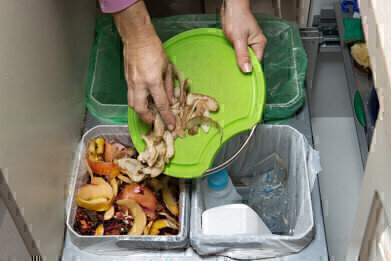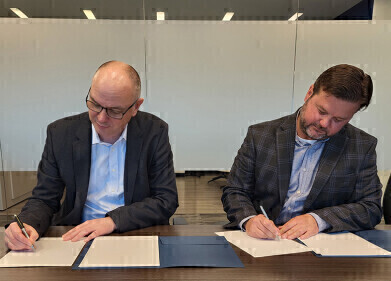Waste Management
Waste to energy for combined heat and power
Nov 09 2022
Author credit: Stephen B. Harrison, sbh4 consulting
A major environmental advantage of using municipal solid waste (MSW) as a feedstock for heat and power facilities is the avoidance of that waste going to landfill, where it would generate methane greenhouse gas emissions. Displacement of fossil fuel usage is another credit in favour of waste to energy facilities when considering their life cycle analysis and overall greenhouse gas emissions impact.
Sophisticated ground based or satellite mounted gas analysers have been developed to monitor landfill gas emissions. They have shown that landfill sites are one of the most significant sources of methane emissions globally.
Some waste to energy plants have been planned to be located next to old landfill sites that are full. The concept follows the traditional location of a coal-fired power plant next to the coal reserves. Construction of a waste to energy facility next to an existing landfill site minimise feedstock distribution costs. Moving the fuel to the power plant is more expensive than moving the power from the power plant, so co-location at the landfill site is economically advantageous.
The Wuppertal waste incinerator in Germany was purpose-built for power generation from the combustion of MSW. It entered service in 1976 and is fitted with two 20MW and one 8 MW power generation turbines. The Wuppertal waste incinerator burns over 1,000 tonnes per day of MSW collected from local businesses and approximately 1.5 million people in the region.
Households in Wuppertal use four bins for their waste: one for paper and cardboard, another for green waste from the garden or food scraps from the kitchen a third for packaging such as plastic bags and a fourth bin for ‘everything else’ or ‘Restmüll’. The paper, packaging and green waste all go their separate ways for appropriate processing. Only the Restmüll - the most difficult rubbish to dispose of in other ways - is used as feedstock to the waste-incinerator. Despite the removal of the green and paper material by the households, Restmüll still has a biogenic content of more than 50% by mass.
In Germany and other countries with colder climates, siting a waste to energy plant in an urban location means that residual waste heat from the process can usefully be used for district heating. The energy savings from combined heat and power generation are circa 30% versus independent heat and power generation. This saving is due to the beneficial use of waste heat from the waste to energy plant which avoids the use of additional fuel in the households for dedicated heating. However, the heat does not travel long distances effectively, so location in, or close to a city is necessary.
In hot countries, where district heating is not required, a similar energy efficiency benefit of combined heat and power generation can be realised if there is an industrial facility close to the waste to energy plant that requires steam or heat within its process.
A further degree of process integration can be achieved if the waste to energy facility is specially designed to safely burn hazardous waste. Hospital waste or light industrial waste are often generated around cities. The waste to energy plant in Herten, 50 km north of Wuppertal, has six burners. Four are designed for regular MSW and two have been carefully constructed to burn hazardous waste. The plant was put into operation in 1982 and the total power generation capacity is 50 MW.
Every year, around 650,000 tonnes of domestic, trade and industrial waste are burned in the Herten combined heat and power station. This represents a significant contribution to a positive carbon dioxide balance because the operation of the waste power plant saves immense amounts of fossil fuels and therefore reduces the overall environmental impact of heat and power generation in the region.
Events
WEATHER • CLIMATE • WATER / EARTH OBSERVATIONS / GREEN ECONOMY
Oct 29 2024 St. Petersburg, Russia
Oct 30 2024 Hong Kong
Nov 05 2024 Toronto, Canada
Nov 06 2024 Ho Chi Minh City, Vietnam
Nov 12 2024 Valencia, Spain













